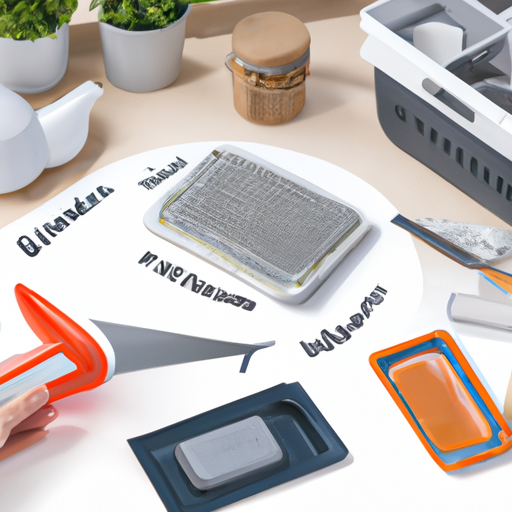

Title: Exploring Mainstream Models of Repaired Products: A Sustainable Solution for a Circular Economy

1. Manufacturer Repair Programs (200 words) One of the mainstream models of repaired products is manufacturer repair programs. Many companies have recognized the importance of extending the lifespan of their products and have established repair programs to facilitate this. These programs often involve offering repair services, spare parts, and technical support to customers. By providing these services, manufacturers not only reduce waste but also enhance customer satisfaction and loyalty. Examples of successful manufacturer repair programs include Apple's Authorized Service Provider network and Patagonia's Worn Wear program.
2. Third-Party Repair Services (200 words) Another model of repaired products is third-party repair services. These services are often independent businesses or organizations that specialize in repairing a wide range of products. They offer repair services for various electronic devices, appliances, and even clothing. Third-party repair services play a crucial role in extending the lifespan of products that may not be covered by manufacturer repair programs. They contribute to local economies, create job opportunities, and provide affordable repair options for consumers. Examples of third-party repair services include iFixit and The Repair Association.
3. Community Repair Initiatives (200 words) Community repair initiatives are grassroots movements that aim to empower individuals to repair their own products or seek assistance from local repair experts. These initiatives often organize repair cafes, workshops, or events where people can bring their broken items and learn how to fix them. Community repair initiatives foster a sense of community engagement, knowledge sharing, and skill development. They promote a culture of repair and self-sufficiency, reducing the need for constant consumption. Repair Café International and The Restart Project are notable examples of community repair initiatives.
4. Online Repair Platforms (200 words) With the rise of the internet, online repair platforms have emerged as a convenient and accessible model for repaired products. These platforms connect consumers with repair professionals or enthusiasts who can provide guidance, troubleshooting, or even remote repair services. Online repair platforms offer a wide range of resources, including repair manuals, forums, and video tutorials, enabling individuals to repair their products independently. Examples of online repair platforms include iFixit's online community and YouTube channels like JerryRigEverything.
Conclusion (150 words) As the world grapples with the environmental consequences of excessive consumption and waste generation, repaired products have emerged as a viable solution to promote sustainability and a circular economy. The mainstream models discussed in this article, including manufacturer repair programs, third-party repair services, community repair initiatives, and online repair platforms, all contribute to extending the lifespan of products, reducing waste, and fostering a culture of repair. However, challenges such as limited availability of spare parts, lack of awareness, and technological complexities need to be addressed to further promote repaired products. By embracing these models and encouraging repair over replacement, we can collectively work towards a more sustainable and responsible future.
Title: Exploring Mainstream Models of Repaired Products: A Sustainable Solution for a Circular Economy

1. Manufacturer Repair Programs (200 words) One of the mainstream models of repaired products is manufacturer repair programs. Many companies have recognized the importance of extending the lifespan of their products and have established repair programs to facilitate this. These programs often involve offering repair services, spare parts, and technical support to customers. By providing these services, manufacturers not only reduce waste but also enhance customer satisfaction and loyalty. Examples of successful manufacturer repair programs include Apple's Authorized Service Provider network and Patagonia's Worn Wear program.
2. Third-Party Repair Services (200 words) Another model of repaired products is third-party repair services. These services are often independent businesses or organizations that specialize in repairing a wide range of products. They offer repair services for various electronic devices, appliances, and even clothing. Third-party repair services play a crucial role in extending the lifespan of products that may not be covered by manufacturer repair programs. They contribute to local economies, create job opportunities, and provide affordable repair options for consumers. Examples of third-party repair services include iFixit and The Repair Association.
3. Community Repair Initiatives (200 words) Community repair initiatives are grassroots movements that aim to empower individuals to repair their own products or seek assistance from local repair experts. These initiatives often organize repair cafes, workshops, or events where people can bring their broken items and learn how to fix them. Community repair initiatives foster a sense of community engagement, knowledge sharing, and skill development. They promote a culture of repair and self-sufficiency, reducing the need for constant consumption. Repair Café International and The Restart Project are notable examples of community repair initiatives.
4. Online Repair Platforms (200 words) With the rise of the internet, online repair platforms have emerged as a convenient and accessible model for repaired products. These platforms connect consumers with repair professionals or enthusiasts who can provide guidance, troubleshooting, or even remote repair services. Online repair platforms offer a wide range of resources, including repair manuals, forums, and video tutorials, enabling individuals to repair their products independently. Examples of online repair platforms include iFixit's online community and YouTube channels like JerryRigEverything.
Conclusion (150 words) As the world grapples with the environmental consequences of excessive consumption and waste generation, repaired products have emerged as a viable solution to promote sustainability and a circular economy. The mainstream models discussed in this article, including manufacturer repair programs, third-party repair services, community repair initiatives, and online repair platforms, all contribute to extending the lifespan of products, reducing waste, and fostering a culture of repair. However, challenges such as limited availability of spare parts, lack of awareness, and technological complexities need to be addressed to further promote repaired products. By embracing these models and encouraging repair over replacement, we can collectively work towards a more sustainable and responsible future.